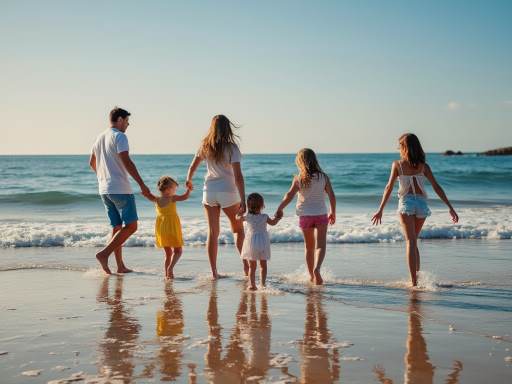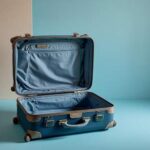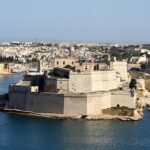Yes it is. One of the safest countries in Europe. There are a few quirks though, let’s dive in!
Emergency Number – 112
Safety Tips When Visiting Malta
Malta is a beautiful and generally safe country to visit, but like any destination, there are a few things to keep in mind to avoid potential mishaps. This list is not meant to be alarmist—common sense prevents most of these situations, but just being aware of them can help you react better if you’re unlucky enough to experience one. We’ll start with the most common issues first, then cover other important tips to ensure your trip is enjoyable and safe.
Overestimating Your Body’s Ability to Handle the Sun
Malta’s Mediterranean sun is strong, and many visitors overestimate their ability to handle it without proper precautions.
- Gradual exposure is key—don’t spend hours in the sun right away if you’re not used to it.
- Always apply a high-SPF sunscreen, even if you have darker skin or it seems cloudy.
- Wear protective clothing like hats and sunglasses, and make sure to take breaks in the shade. Those swimming UV shirts for swimming are great.
- Staying hydrated is equally important to avoid heatstroke or dehydration, especially if you’re exploring or on the beach all day.
Take care especially if you are planning to take on, one or more of Malta’s big five multi day tracks.
Overestimating Your Swimming, Snorkelling, and Scuba Diving Skills
Malta offers fantastic opportunities for water activities like snorkelling and scuba diving, but it’s crucial to be honest about your abilities.
- Strong currents, even in seemingly calm areas, can be dangerous. If you’re not a strong swimmer, stick to designated areas and consider taking guided snorkelling or scuba diving tours.
- Never venture out alone or far from the shore unless you’re confident and experienced.
- Don’t hesitate to ask a few locals for advice if you feel your gut feeling telling you something.
- If you see no one swimming, this should start riming alarm bells !
- If you are the one who is swimming the furthest from the coast, ask yourself if there is a real need to do this?
- Sometimes there is a gentle current between Comino and the little rock opposite, where in between you have the blue lagoon. Follow the life guards advice. Blue lagoon is a beautiful place, and you should enjoy it.
- Kids Swimming aids are crucial
Venturing Out of Designated Swimming Zones
While it can be tempting to swim outside of marked areas, these zones are designated for a reason.
- Swimming outside the marked areas can expose you to boat traffic, strong currents, and even hidden underwater hazards.
- Stick to lifeguarded zones where you can be sure the water is safe for swimming.
Jumping Into the Sea
Many Maltese coastlines are rocky and beautiful, but it’s vital to check the water’s depth before jumping in.
- What looks like deep water may be shallow, and there could be hidden rocks beneath the surface.
- If in doubt, always enter the water feet-first to avoid injury.
- Don’t jump into the sea from high places, keep it simple.
Your car jumping into the sea
Do not drive your car into the sea. This accidents happen although rarely. We have an extended guide:What you should do if your car ends up in the sea in Malta and elsewhere ?
In brief:
- S – Seatbelts Off: Unbuckle immediately.
- W – Windows Open: Open windows right away, as water pressure makes it difficult once submerged. If the window jams, use a glass-breaking tool.
- O – Out Immediately: Exit through the window without delay.
- C – Children First: If traveling with children, help the oldest first to make evacuation easier.
Flash floods
Tropical thunderstorms with sudden, intense rainfall can lead to flash flooding in Malta’s low-lying areas, such as Msida, Birkirkara, and Qormi. While these hazardous conditions are most likely to occur in September and October, they remain relatively rare
Driving on the Left and Road Safety
If you’re driving in Malta, remember that traffic runs on the left side of the road, which can take some getting used to if you’re from a country that drives on the right.
- Take your time, especially when navigating roundabouts or narrow roads.
- Be mindful of pedestrians, particularly in busy areas like Valletta and Sliema.
Climbing and Bouldering
While Malta’s cliffs and rocky landscapes are inviting for climbing, it’s not always a good idea unless you’re experienced.
- If you’re not sure about the safety or stability of the area, don’t risk it.
- Even if you’re confident, it’s often better to climb with local experts who know the terrain and potential hazards well.
Learn More : Climbing in Malta
Exploring Ruins or Abandoned Buildings
Exploring Malta’s ruins or abandoned houses may seem like an adventure, but it’s best to avoid it.
- Many abandoned buildings or construction sites can be dangerous due to unstable structures, hidden hazards, or unmarked risks.
- Just don’t do it—it’s not worth the potential injury or trouble.
For example on Manoel Island there are a few abandoned buildings, they are interesting to look from the outside. No need to go in.
Jellyfish Awareness
Jellyfish are common in Maltese waters at certain times of the year.
- Some beaches will have warnings or flags if jellyfish are present.
- Carry vinegar or a special sting ointment just in case, as it can quickly neutralize the pain and prevent the sting from worsening.
Overindulgence in Alcohol and to a lesser extent in food
Malta’s cuisine and nightlife are both rich and tempting, but overindulgence can lead to discomfort.
- Be mindful not to eat or drink too much, especially at festivals where food and drink portions are often large and alcohol is easily accessible.
- A binge at St Juliann’s might feel good at the time, however isn’t drinking in St Julian’s or Munich a bit of the same experience. Think that the day after you will not be in tip top shape to enjoy the sea, Neolithic temples, the knights great works or connect with others over a good coffee.
- Festivals and events can also be expensive when it comes to food and drinks, so it’s wise to plan and budget ahead.
- Be smart don’t drink and drive!
- The local delicacies are nice and good. Pace yourself 🙂
Booking Long-Term Accommodation Without Seeing It First
For stays of four weeks or more, booking accommodation without seeing it in person can lead to surprises.
- While online reviews and photos help, they don’t always show the full picture, like noise levels, the quality of the building, or distance from main areas.
- If possible, visit the accommodation before committing, or at least request a virtual tour. Consider central locations like Sliema or Gzira for convenience and to minimize travel times.
Road Rage and De-escalation
While Malta is generally a calm and friendly place, there can occasionally be incidents of road rage, especially in heavy traffic.
- If you happen to be on the receiving end of someone showing frustration—like a rude hand gesture—it’s best not to react.
- Focus on de-escalation and avoidance. Stay calm, don’t engage, and continue driving safely. Keeping your cool will help prevent the situation from escalating further.
Road Checks and Paperwork
Malta frequently has roadblocks, especially during holidays and festivals, where authorities check for proper documentation and intoxicated drivers.
- Always carry your Driving License, ID, passport, and necessary travel papers when driving, and never drive under the influence.
- If you’re renting a car, make sure you have the correct license and documentation on hand.
- Again don’t drink and drive!
Biking on the Road
Unfortunately, cycling and motorcycle riding in Malta can be less than safe due to narrow roads, traffic, and limited bike lanes.
- Accidents do happen, so take extra caution if you plan on riding a bike or motorcycle.
- Always wear protective gear, use lights at night, and stay as visible as possible to other drivers.
Culture Shock
Maltese culture can vary significantly between generations and backgrounds.
- The residents of Malta are a mixed bunch, with some having lived abroad and travelled extensively, while others may not have had the same exposure and have a different culture than yourself. It’s important to listen and observe before jumping into conversations with strong opinions, as perspectives may differ widely based on personal experiences.
- The Maltese tend to speak louder than your average European. This isn’t rudeness; it’s just part of their communication style. Sometimes there is some hand waving as well, we inherited this from our Italian neighbours 🙂
- Catcalling: While it happens less frequently than in previous decades, it does still occur. Malta has become a melting pot of cultures. Use your common sense and tact in your reaction.
- Nadur Carnival: The Nadur Carnival can be a wilder affair compared to the Maltese Carnival. Especially in the late hours, things can get more chaotic, so it’s best to be prepared for a lively crowd.
- Tattoos are also common and are seen as a fashion statement rather than anything gang-related, as they might be interpreted in other cultures.
- Some Maltese speak English between each other and other Maltese speak Maltese between each other. It’s normal.
- Maltese sounds like a mix of Arabic, Italian and French. It is written in the roman alphabet.
- There are more Christian churches in Malta then days in a year.
Country-Side Dangers
While exploring Malta’s beautiful countryside, there are a few hazards to be aware of:
- Cliffs: Some areas have steep cliffs, and unfortunately, people have fallen and injured themselves or worse. Always stay on marked paths and avoid going too close to the edge.
- Open Wells: While uncovered wells are uncommon these days, they do still exist. Stay alert and watch your step, especially in rural areas.
- WWII-Era Barbed Wire: It’s rare, but there are remnants of old barbed wire left over from WWII. Watch out for it while exploring off the beaten path.
- Hunters: Hunting is a sensitive topic in Malta, and if you’re taking pictures of hunters or their setup, they may misinterpret it as an invasion of privacy. They generally don’t appreciate being recorded, so if you see hunters, it’s best to smile and move on. The ongoing clash between hunters and bird protection NGOs is a long-standing one, and you don’t want to get caught in the middle of it.
- The letters “RTO” means reserved to owner. No comment on this one.
- Walls. The country side walls in Malta are rubble walls. The stones are not attached to each other. The stones are balanced one on top of the other. Some have stood for more than a 100 years, so they are pretty solid. That is unless an 8 year old sees these as a great climbing wall.
Dealing with Maltese Online Misinformation and Clickbait
It’s easy to fall into the trap of alarming click bait or misinformation when researching travel.
- Always check your information to avoid clickbait or biased reports. If you’re unsure, don’t hesitate to call a local (like your hotel, Airbnb host, or a local business) (you can also reach out to official government sources) for clarification. It’s often the best way to get reliable advice. Some online sources have a lot of “arm chair warriors” with their own agenda and pet peeves. As mama used to say “Don’t trust Strangers” ! 🙂
Drugs (As of October 2024)
We’re not offering any specific advice on this subject, except to urge you to be extremely cautious. Yes, one substance is legal (and we’re not even going to say which one), but navigating this area isn’t straightforward. Laws can be complex, so make sure to thoroughly read up on current regulations and triple-check your information before getting involved to avoid any legal trouble.
Usual Stuff
While Malta is a safe destination, it’s always important to take the usual safety precautions:
- Do not leave your drinks unattended in bars or clubs.
- Pickpockets operate in busy tourist areas, so keep an eye on your belongings.
- Theft from Cars: Unfortunately, car break-ins do happen. Use common sense—keep valuables out of sight, lock your doors, and avoid leaving items in the car when possible.
- When it is to good to be true it is. Yes it is, no ifs ands or buts. This simple rule will keep you out of trouble in many a place.
Shark Attacks
No need to worry about sharks in Malta. Shark attacks? No. Nada. Not happening.
Cockroaches
These creatures are in Malta, it is hot here and sometimes they need a breather from their underground liar. You might see one zooming past. No need to panic, they usually disappear as fast as they appear.
Mice and Rats
They are around, sometimes you can see one late at night. They are god’s creatures as well and they have their place in the ecosystem. No need to panic if you see one, let it be.
Taxes, Visa and Immigration
Working from Malta as a digital nomad or a remote worker might be a local tax event. Buying property etc, the same. Stay safe and get a good local expert to avoid issues in the future and setup yourself the correct way. Check if you need a VISA before coming to Malta. Malta is in the EU and part of Schengen area.
Snakes
Unfortunately I have not seen one in the wild in the last 30 years. In any case Malta has no venomous wild snakes.
Medical Attention and Hospitals
Malta has a good public health care system with clinics in most localities and a hospital in both Malta and Gozo. It also has some private hospitals. Health and Travel insurance are great when you need them.
“Sensitive Services”
Malta has a vibrant nightlife, which is fun and exciting. You can enjoy a movie, then go bowling, then to a bar for a beer or Guinness and then dance the night away. However there is another layer to nightlife, like in all countries.
- Nightlife areas are usually safe and fun however, like in any night life area. Be Smart!
- Funny Business can lead to funny situations and disappointment both emotionally and financially (need I say more?)
- Be mindful of personal health precautions when engaging in closer social interactions, as unfamiliar environments fuelled by alcohol and other stuff can sometimes lead to unintended risks. If you end up regretting something or are worried look up the GU Clinic. In some cases time is of the essence.
Avoid Disappointment: Underestimating Parking Time
If you plan on driving around Malta, parking in popular areas like St Julians, Sliema, Gzira, and Valletta can take time. Sometimes you are lucky and you park in under 5 minutes other times you need a good 15 minutes and the spot is 400 meters from your target.
- During peak times, finding parking may take longer than expected. Always factor in extra time if you’re driving to tourist spots.
- Staying in central areas like Sliema or Gzira can save you a lot of hassle as these places are well-connected and reduce your need for a car, with most key attractions within walking distance.
- Parking in Valletta is a big problem you also need a special badge to enter the historic city. However there is a huge car park at the entrance and there are always free (but paid) spots there.
Learn more : History of Sliema, 20 Day trips from Sliema, What you can see and do in Sliema.
Avoid Disappointment: Plan Accommodation and Attractions in Advance
Whether you’re booking accommodation or visiting major tourist spots, planning is essential.
The same goes for restaurants and long-term accommodation. What may look like a cheap deal could end up being far from central areas, leading to time-consuming commutes.
Conclusion
Popular attractions like the Hypogeum require bookings months in advance, and failing to plan could leave you disappointed.
By staying mindful of these tips, you can enjoy a safe and relaxing trip to Malta. Whether it’s taking care of your health, navigating the roads, or avoiding travel pitfalls, a little preparation goes a long way in ensuring you make the most of your time on this stunning island. Have I scared you off? I hope not! Come over and have fun! You’ll be fine. Malta is a great kids for families, kids and young people. 🙂
Interested in more travelling tips : Check out our world wide travel tips.









